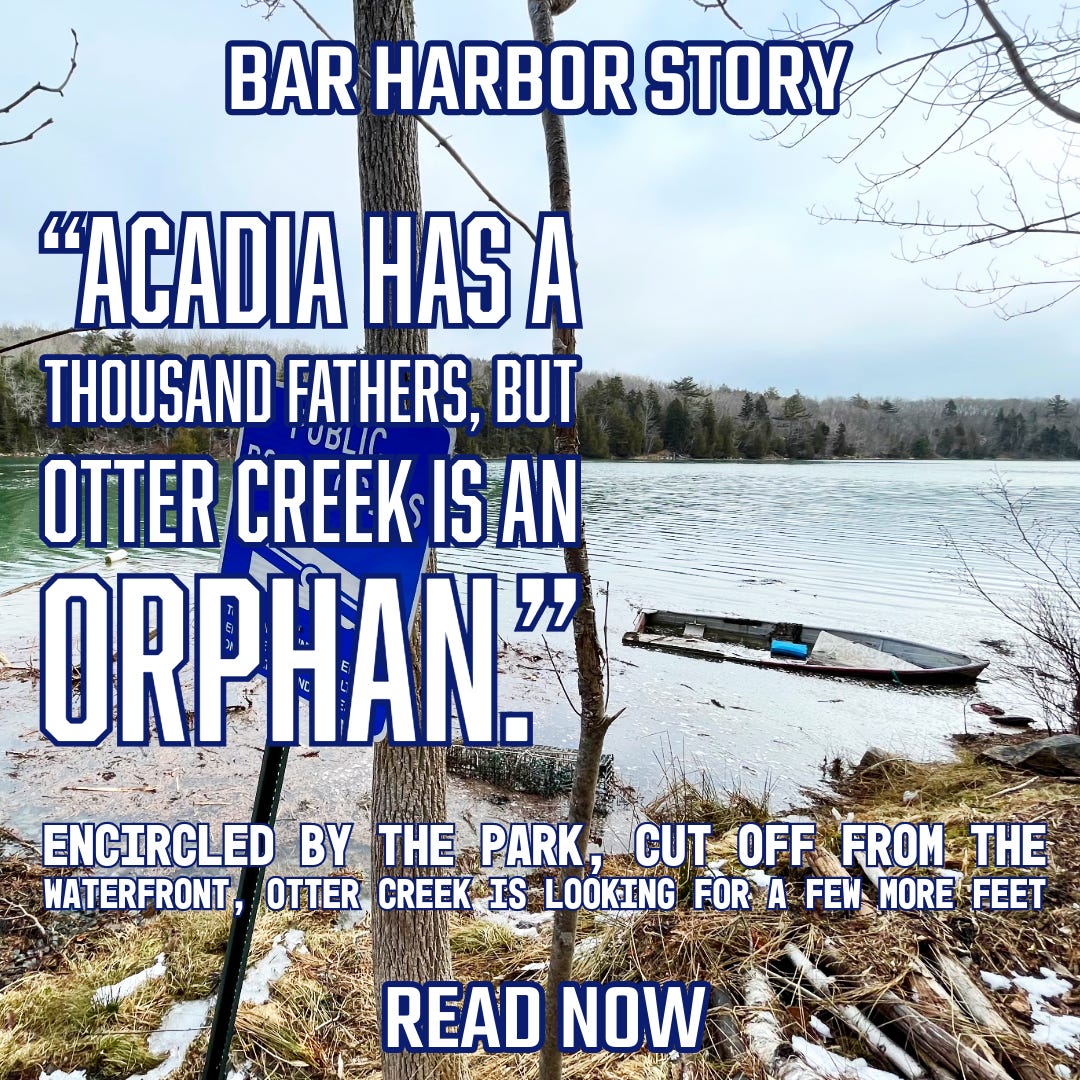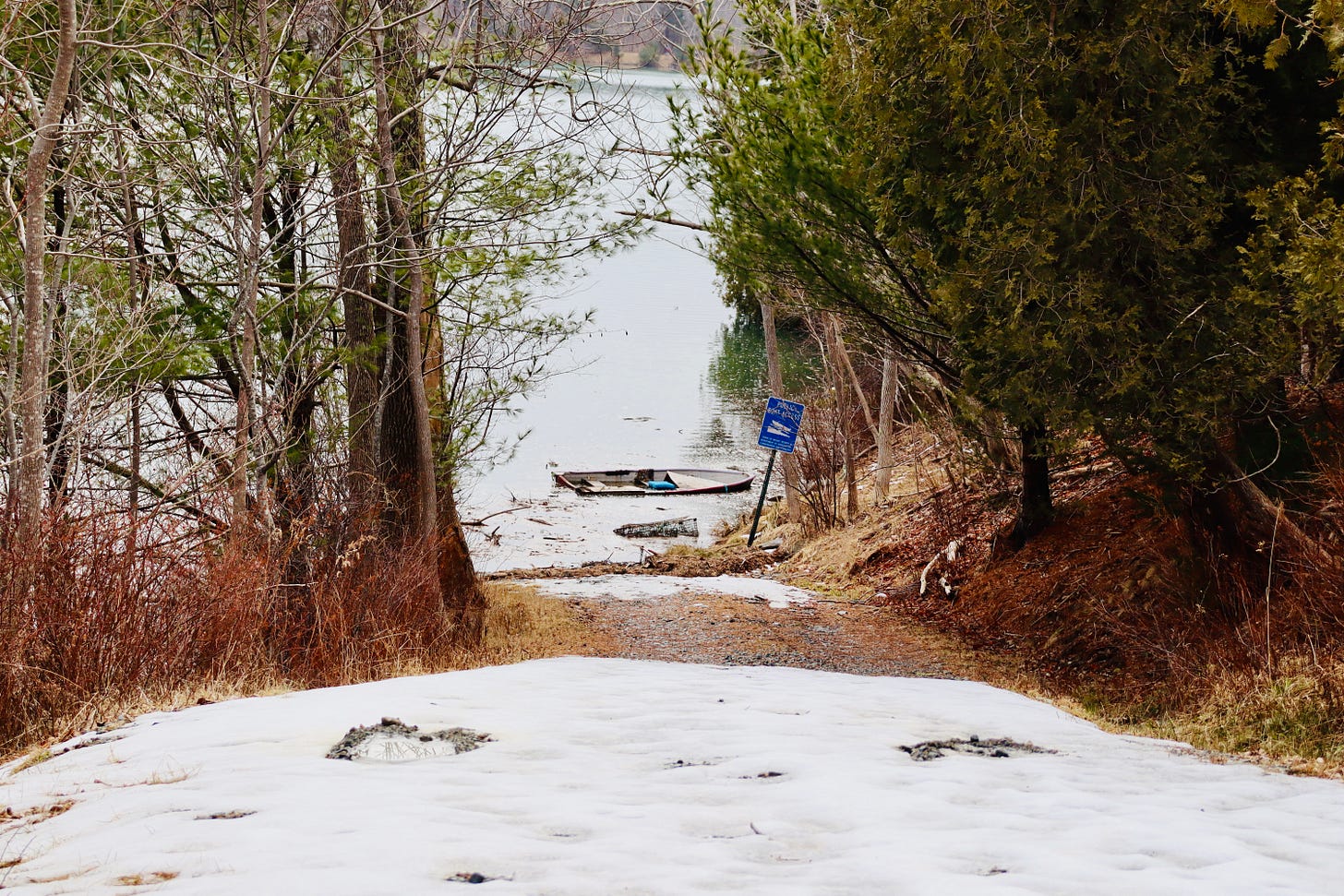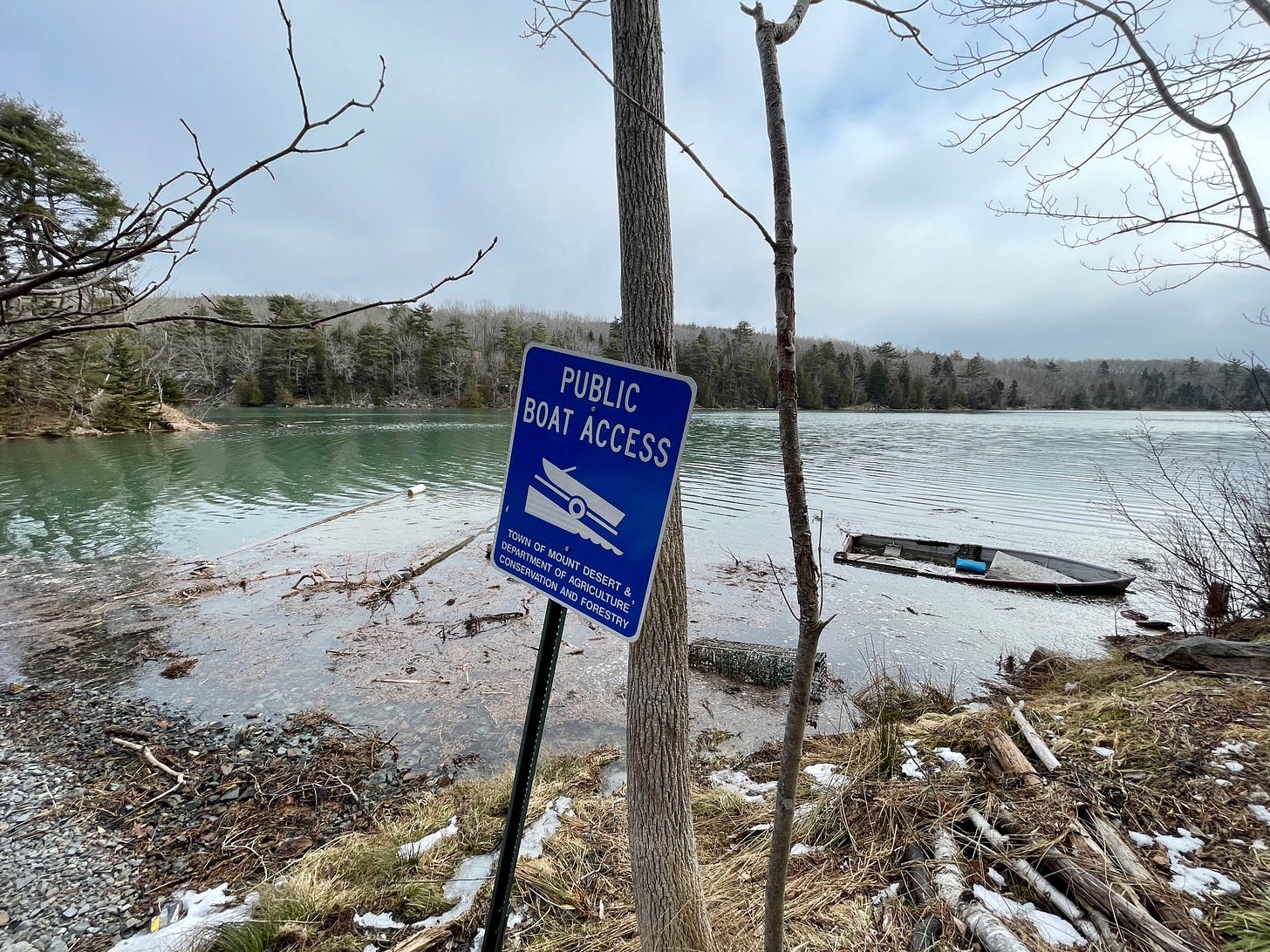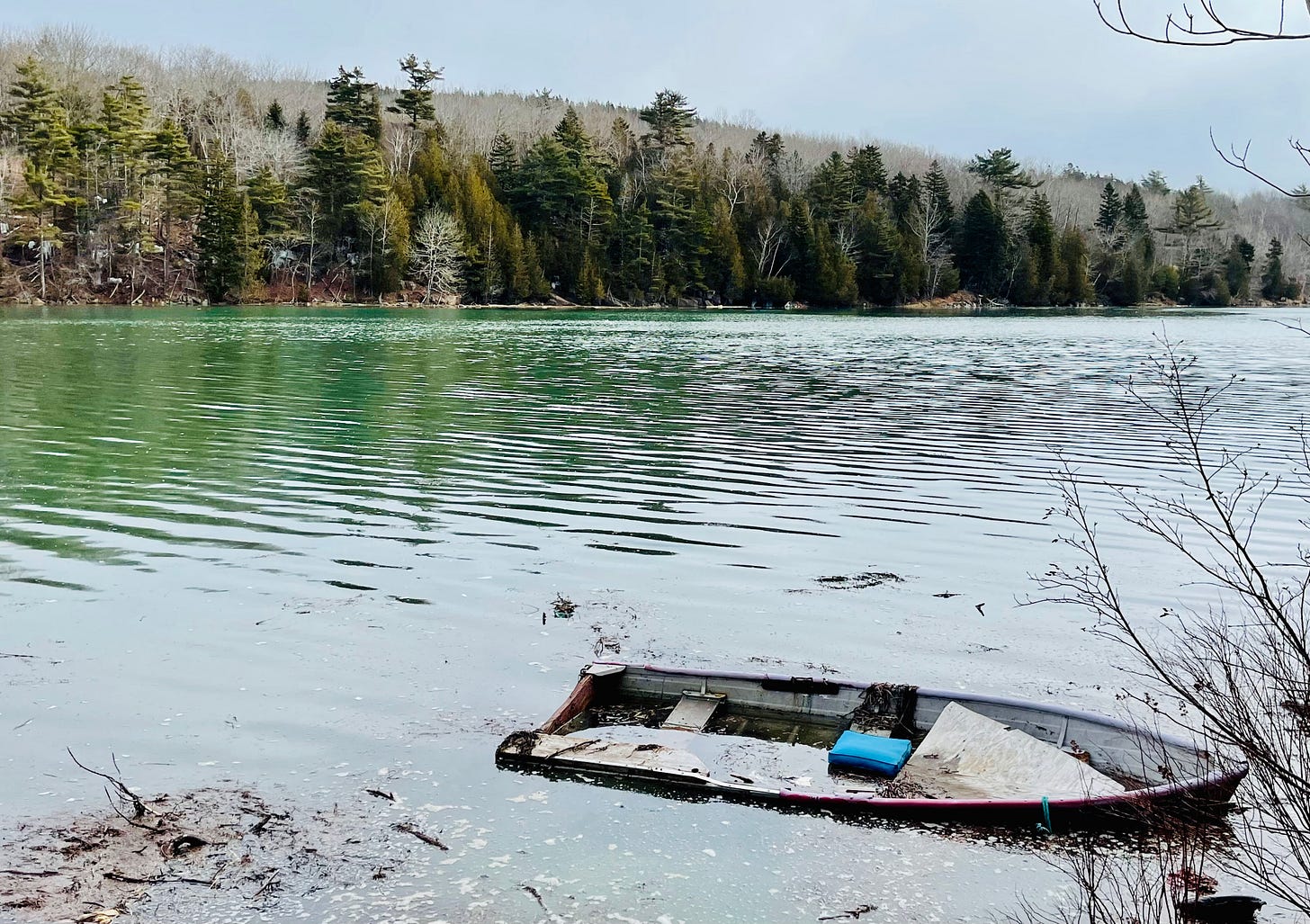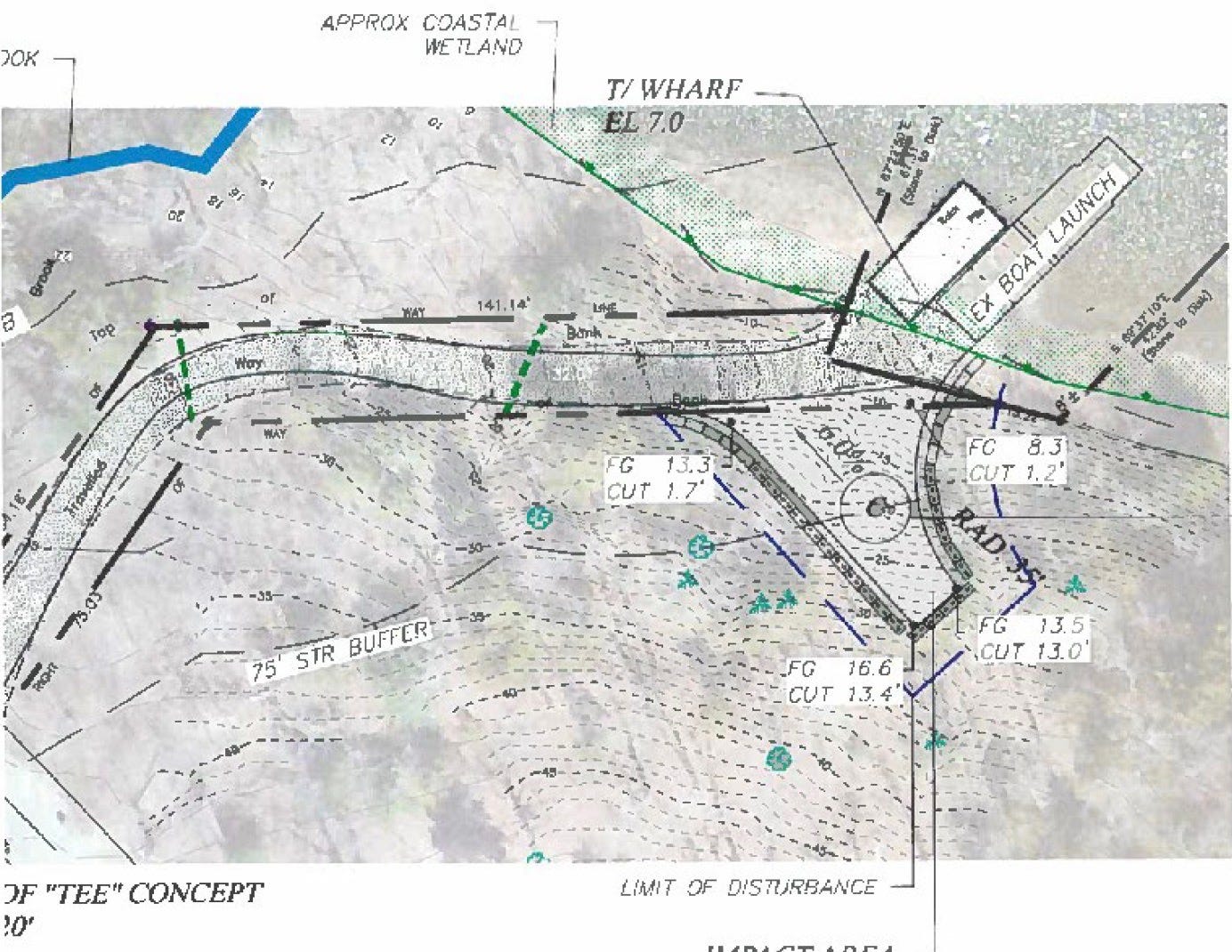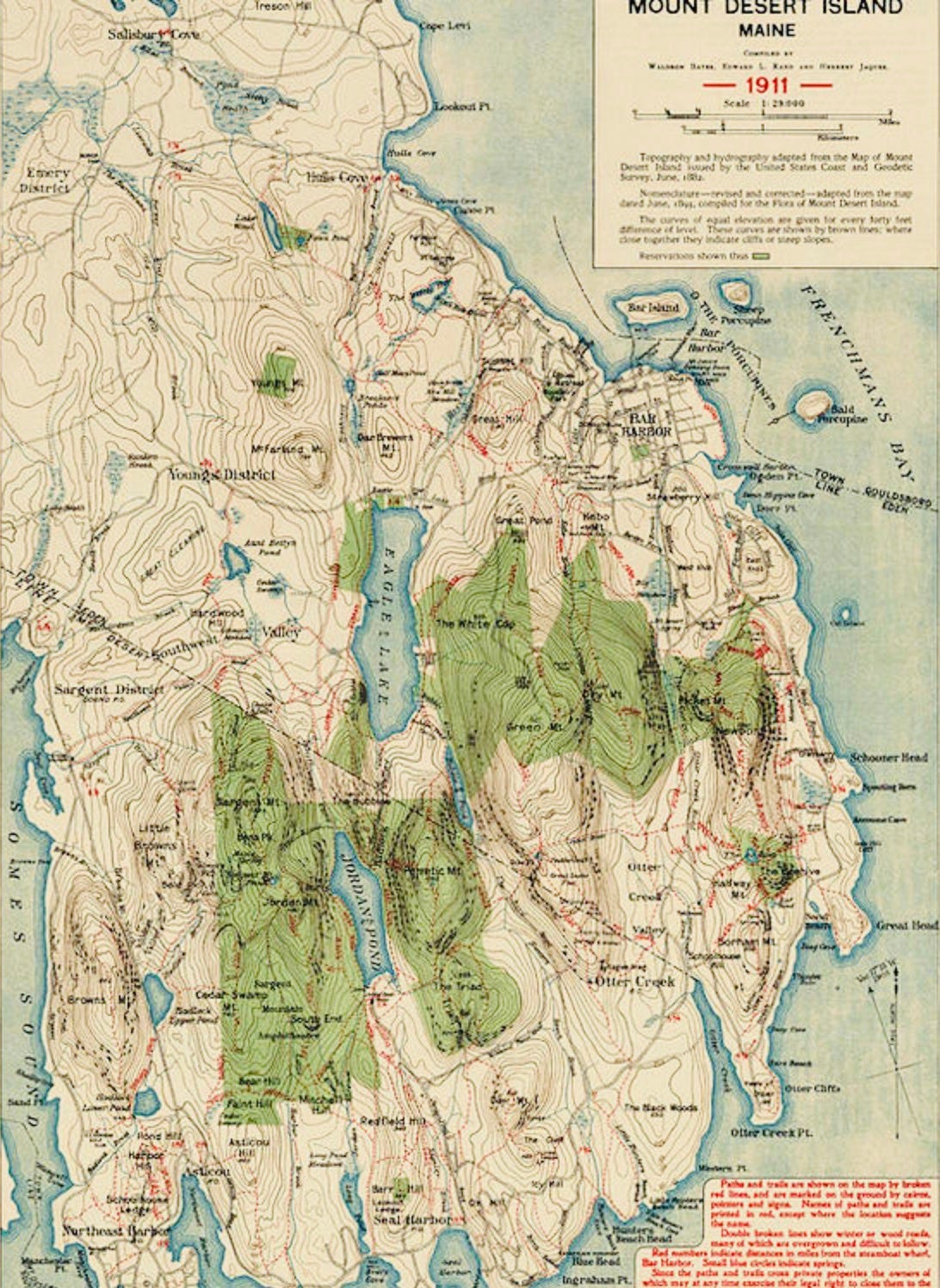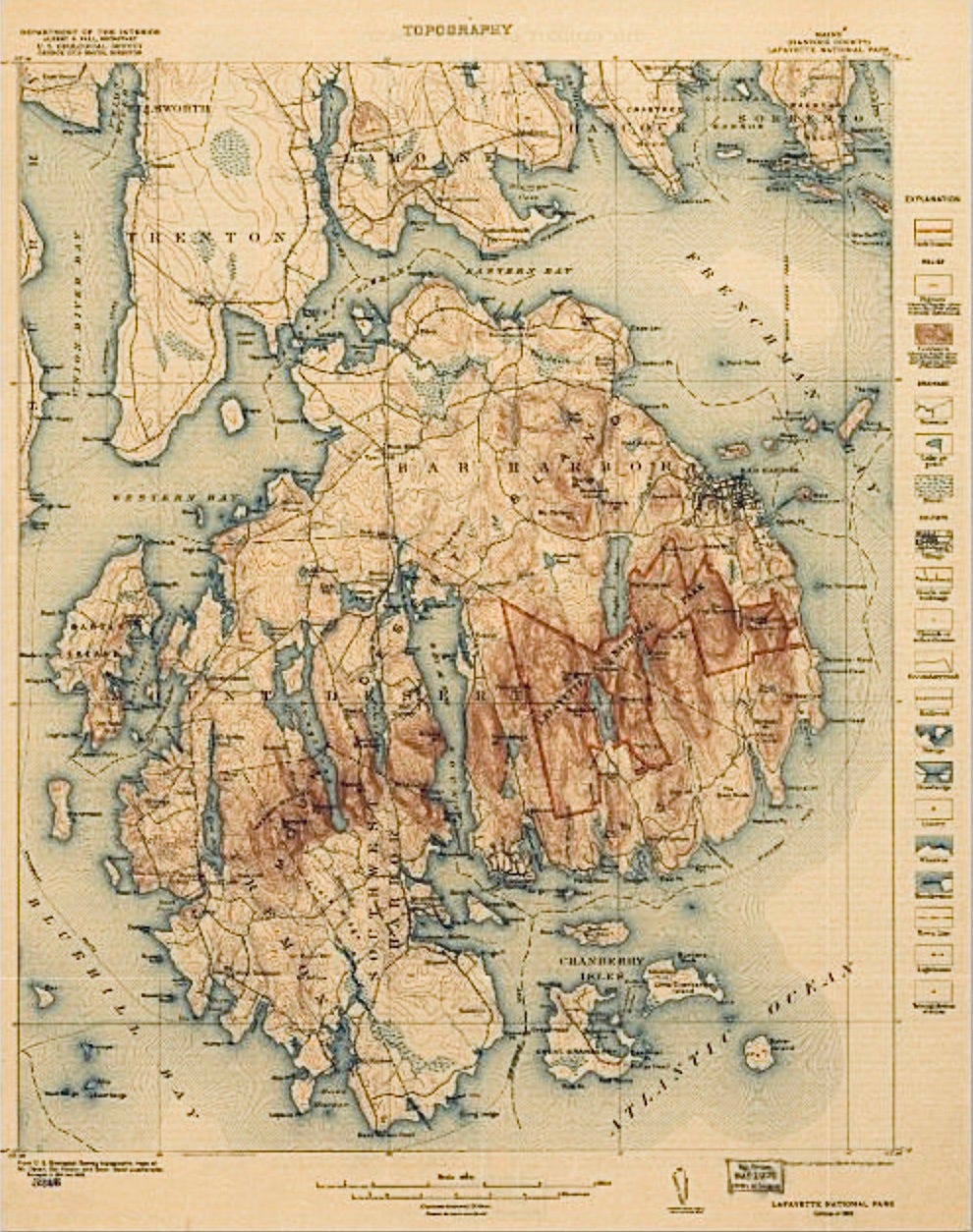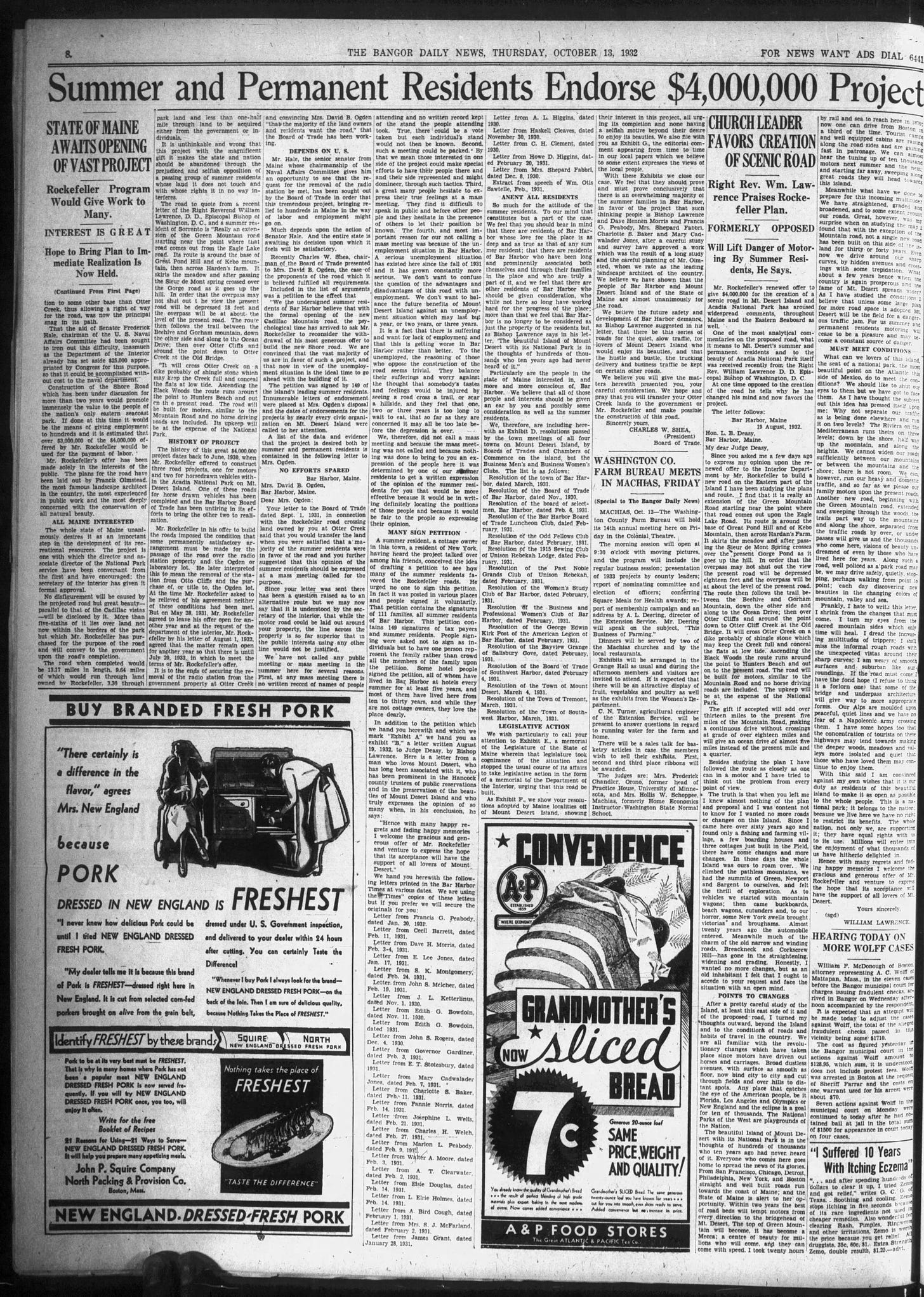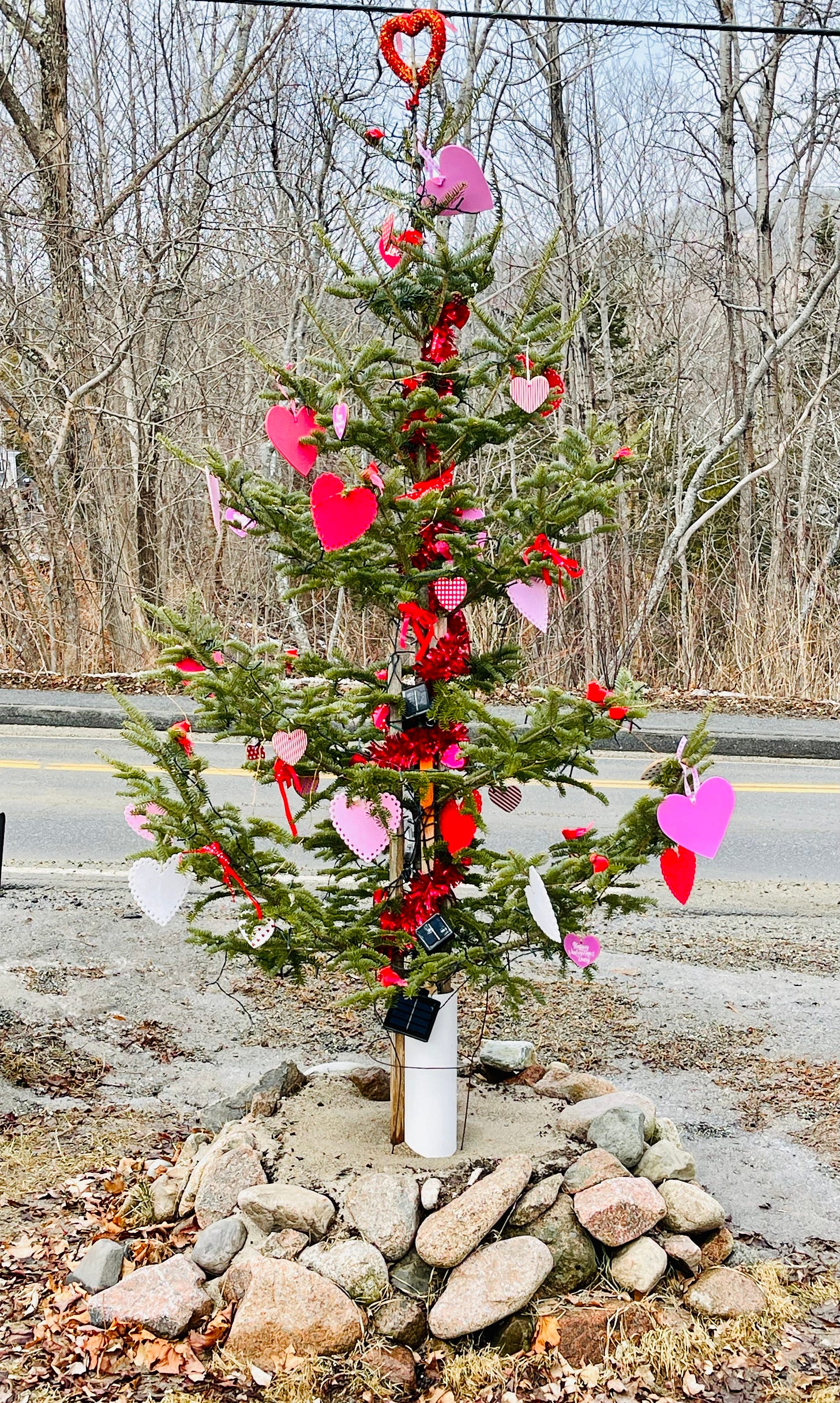“Acadia Has a Thousand Fathers, But Otter Creek Is an Orphan.”
Encircled by the Park, Cut Off From the Waterfront, Otter Creek is Looking For A Few More Feet
BAR HARBOR—Three-thousand square feet is basically a piece of land that’s 55 feet by 55 feet. It’s .052 of a football field, including the end zone. It’s .63 of an NBA basketball court.
It’s also the size of a piece of land that the village of Otter Creek really wants back.
Last week at the Acadia National Park Advisory Commission, Mount Desert Town Manager Durlin Lunt made his case for the park to give that bit of land back to the town. Technically, he was asking to obtain an easement of approximately 3,000 square feet of land owned by Acadia National Park in the village of Otter Creek without an encumbrance of land.
According to the commissioners, that’s not how things usually happen with national parks. Sometimes, there are land trades, but it’s rare that land or easements are given back.
The land in question is adjacent to the boat launch on Grover Avenue and in the village of Otter Creek. The town wants it for the purpose of expanding vehicular access to the municipal facility.
Currently, the site is difficult to access and goes down a sharply angled dirt and gravel path parallel to Otter Creek and to the cove. During high tide, it is impossible to turn a vehicle around. During low tide, it’s pretty close to impossible as well. In 1993, Mount Desert received an easement from ANP to build a boat launch and pier. It was acquired via a land swap.
“The facility, at this point in time, is inadequate,” Lunt said. It is used for small boats, dinghies, kayaks, canoes.
“This would make the facility ever so much more useful. This project would be the completion of the work that began in 1993,” Lunt said of the potential land return.
Lunt’s presentation focused on the community history of Otter Creek’s waterfront, a history of haves and have-nots, he said, and a history of Acadia National Park’s creation. As the park grew, the community of Otter Creek was cut off, surrounded by federal lands. Its cove was split in two by a causeway. Even the trails villagers used to get back and forth to the waterfront were eventually no longer maintained.
HISTORY
The Hancock County Trustees of Public Reservations was founded in 1901 and its mission, Lunt said was “to acquire lands of scenic beauty, historical significance, scientific study or sanitary value.” By 1913, it had acquired 5,000 acres on MDI. It donated the lands to the federal government in 1916. That land became Lafayette National Monument, which eventually became Acadia National Park.
In 1911, the park boundaries didn’t come near the fishing community of Otter Creek. In 1922, those boundaries had moved closer.
“The will of the trustees to not impinge on the cultural and economic rights of Otter Creek maintains up to 1936,” Lunt said, referencing documents and letters supporting that the trustees did not want to harm local communities as the park was created. “What was once a coastal village is no more. The village of Otter Creek has probably had the most impact of any population center on Mount Desert Island. None of the others have had such a drastic change.”
HOW DID IT HAPPEN?
Back in 1936, the town’s Warrant Committee voted to indefinitely postpone Article 33 at town meeting. That article said that the town would discontinue the use of the town way and town landing to Otter Creek. The vote came at the height of the Great Depression.
“Work was hard and times were tough,” Lunt said.
A lot of people at the meeting, he said, were under the employ of John D. Rockefeller. He wanted the waterfront to be part of the park. He also wanted the cove to be a swimming area.
Lunt quoted past Mount Desert selectmen and historians, who said that Rockefeller told people how to vote and a bus took people to the polls,
“Paul Richardson, a former member of this advisory commission said, ‘He even got the town meeting in Mount Desert to shut off the right of way for the people of Otter Creek at the foot of the hill to get to the inner harbor. I don't know how he got away with it. There was an implication that he had cajoled people into voting for it, because why didn't the people with the warrants that must be presented before the town meeting know that Rockefeller wanted that shut off.’
“Former Mount Desert Selectboard member Thomas Richardson said, ‘There was a town meeting in 1936, it was apparently about Rockefeller giving land to the park. He owned property around the cove. There was an implication that he had cajoled people into voting for it because he employed a lot of people and that kind of thing.
“Local historian Sherwood Carr said, ‘They were trying to send a bus around, and if you worked for Rockefeller he kind of took you to vote, kind of told you how to vote.’
“Otter Creek fisherman Norman Walls said, ‘Rockefeller was a great one for going around and talking with everyone. He assured them, "Hey, it will never be a problem. You'll always be able to go down there and it will be the same with the fish houses.'“ John D. Rockefeller granted the fishermen that they would never have a problem down here when he turned everything over to the park. And it was only a handshake, you know.’"
“You may say that much of what I present is speculation, conjecture, and hearsay,” Lunt said.
But he knew those selectmen. He knew those historians. He believes them.
So, the change was voted in by the town back in the 1930s.
There was outrage. Lawsuits were threatened. The fishermen were about to lose their access road to the fish houses on the eastern shore of the cove. The fishermen, Lunt said, were provided a handshake deal that would allow them to access the fish houses even when those houses became Acadia National Park land.
“Unfortunately the promise for perpetual access was never recorded in the transfer deeds,” Lunt told commissioners.
After 1960 and Rockefeller’s death, the ANP administration declined that access.
“You may also say that acquiring town land would be a precedent (for parks) and I agree,” Lunt said.
But, he emphasized, strong arm tactics happened throughout the U.S. and working class occupants were removed from their land to support what was perceived as a national calling. He wants to get the legislation started now to get that little bit of land back, and he’d like it passed as quickly as possible. He asked that they write to the Department of Interior and take steps to support the easement.
“Acadia has a thousand fathers, but Otter Creek is an orphan,” Lunt said, tweaking the famous quote by President Kennedy after the Bay of Bigs disaster in 1961.

DISCUSSION AND NEXT STEPS
However, it wasn’t quite that easy.
The Town of Mount Desert sought the endorsement of the commission and though some commissioners’ backed Lunt’s proposal and all said he articulated the facts well, there was hesitancy about giving the land back.
Friends of Acadia President Eric Stiles said he doesn’t dispute the facts of the presentation, but has strong concerns of the gift of a public access to a town without a land exchange.
“Once you open the floodgates, the divestiture of public parks,” he said, “is a dangerous precedent to pursue.”
He believes an exchange of land is more appropriate. This does not always happen for parcels outside the park’s contiguous boundary.
In 2022, a bill passed allowing Bar Harbor to develop workforce housing on a 55-acre parcel in Town Hill. That parcel was owned by the park, but not connected to any other park land. Approximately 40 acres of the land was conveyed to Bar Harbor. The park kept 15 acres to build homes for seasonal employees.
This occurred after Bar Harbor appealed to the park for 55 acres of isolated land in Town Hill. That land off the Crooked Road is what the park called “a deletion parcel.” That means it’s outside the park’s contiguous boundary. The bit of land in Otter Creek is not.
The commission voted to send Lunt’s request to the Lands Committee. Between now and June it will be reviewed and come back to the Commission at its June meeting. There was some pushback on that move.
“Otter Creek and Otter Cove has been on our agenda since we began,” one commissioner said.
And there was a bit of a hitch. The Lands Committee has no chair and has several missing members. The commissioners voted Darron Collins, Kirk Emerson, and Howie Motenko to the committee. They join Ben (Lee) Worchester.
Mike Olson, an Otter Creek resident, told the commissioners the public sees the park as a Goliath and does not see the need for a land swap.
The commission’s purpose, according to the website is:
“The purpose of the commission is to advise the Secretary of the Interior through his designee, the superintendent, Acadia National Park. The superintendent shall conduct with and request the advice of the commission on matters relating to the management and development of the park including, but not limited to, each of the following:
“The acquisition of lands and interests in lands (including conservation easements on islands).
“Termination of rights of use and occupancy.”
LINKS TO LEARN MORE
Enabling legislation PDF below (the file name is 420):
This is the first in a series of stories about Otter Creek. We’ll tag all of these “Otter Creek” so that they’re easier to find on the website.





